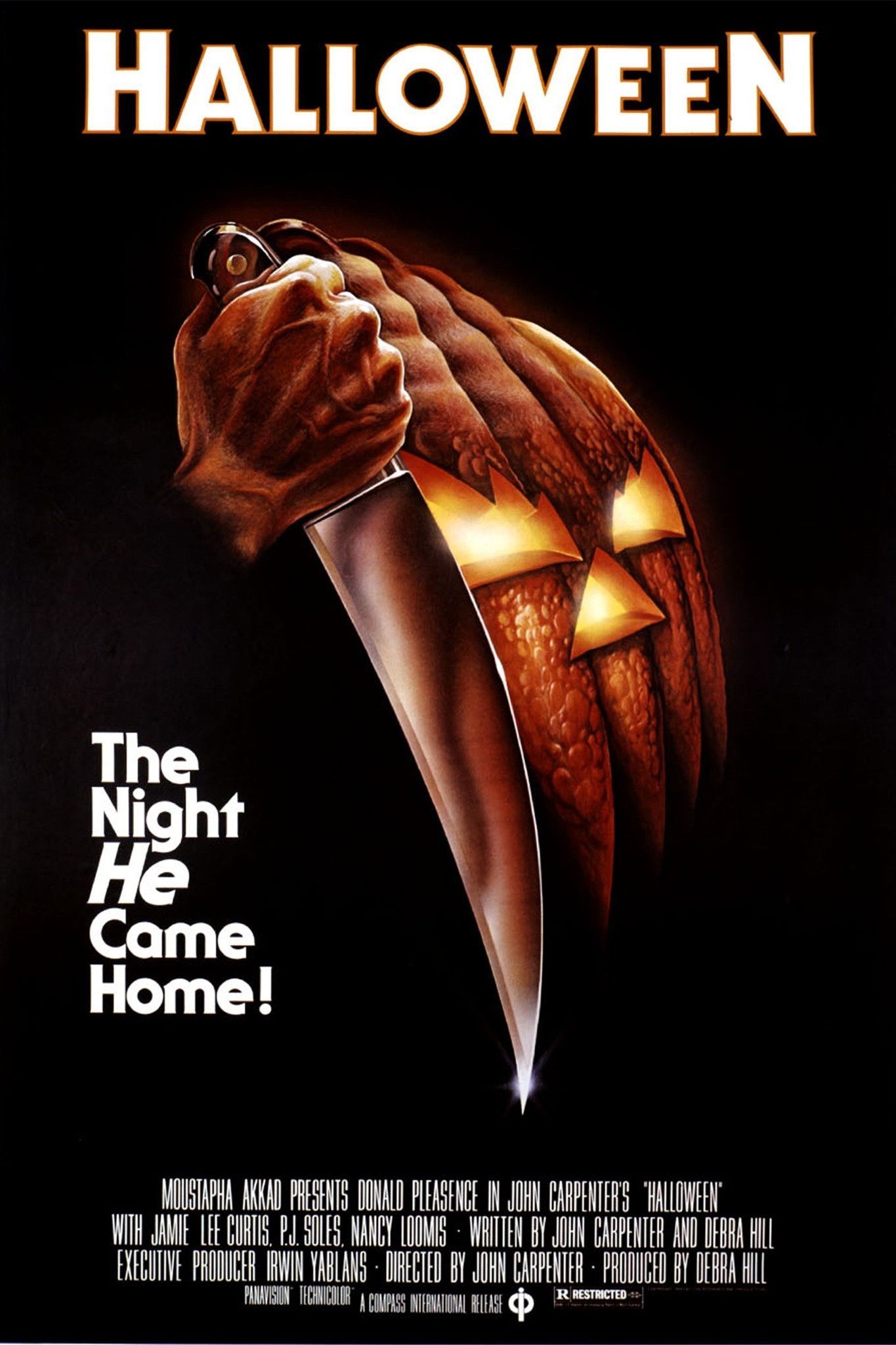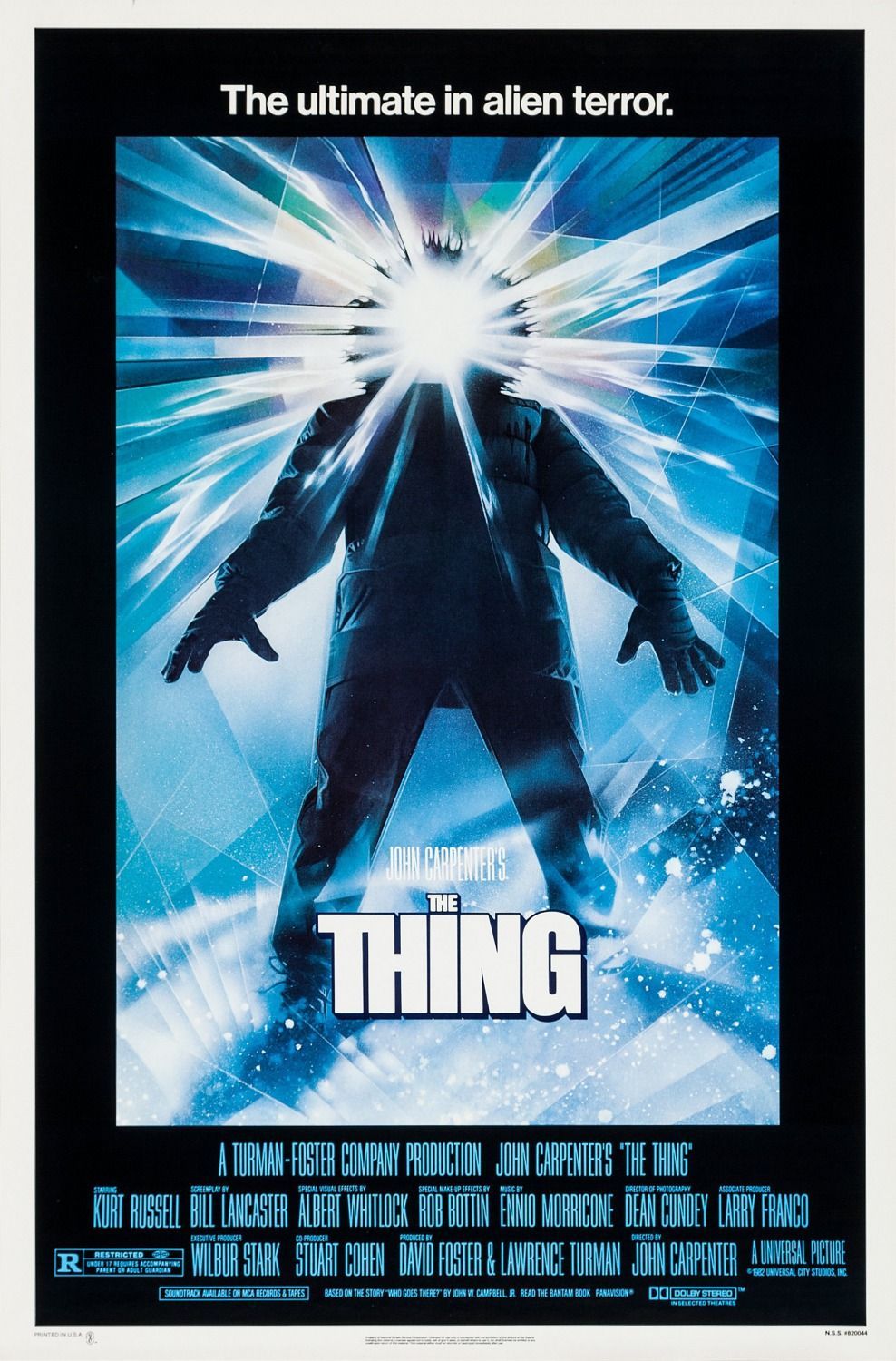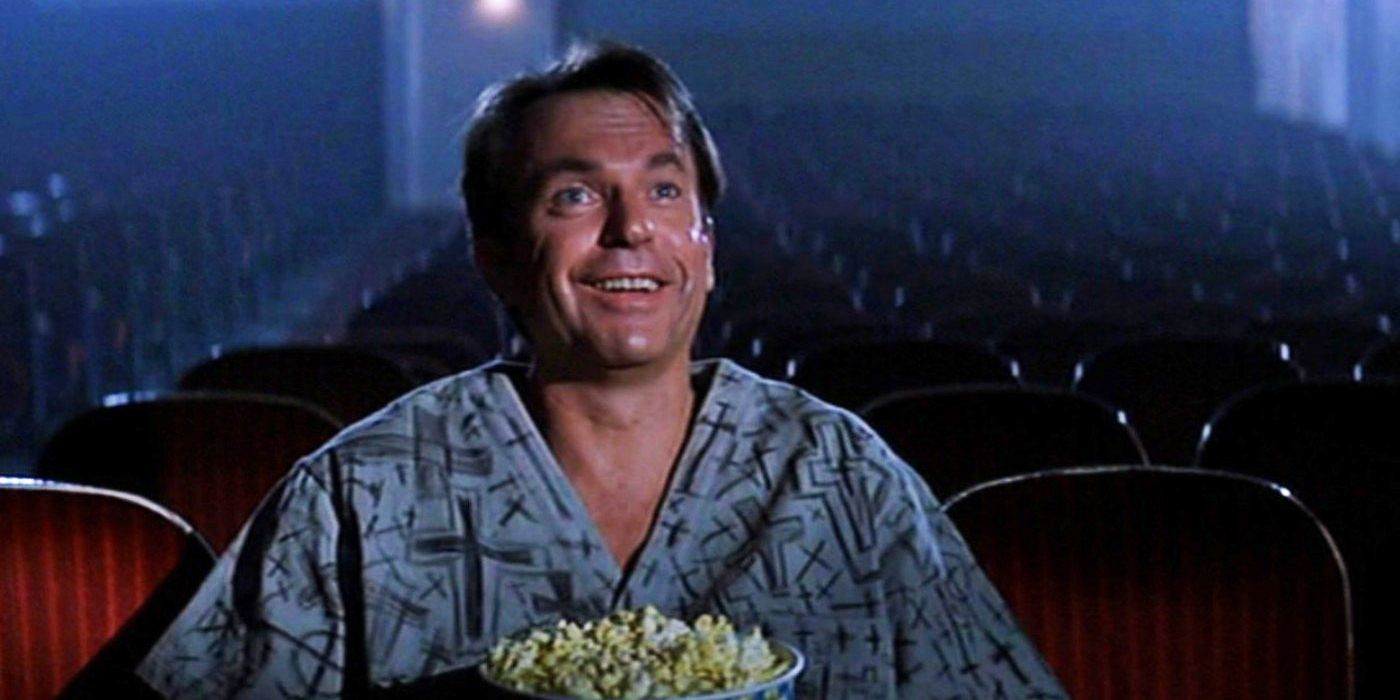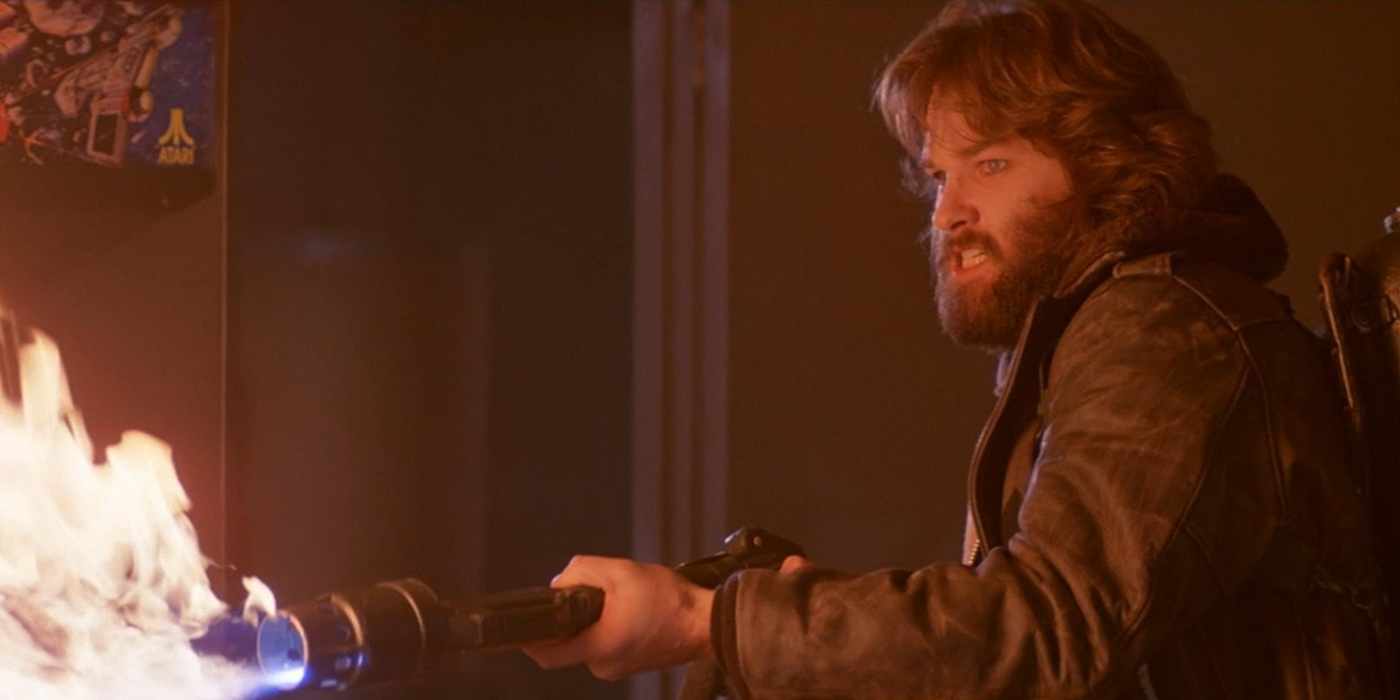John Carpenter is unquestionably a master of horror. His decade-spanning career has produced some of the most iconic films made in the genre, making his name synonymous with all things that bump in the night. Carpenter’s vision and fearless examination of social issues within his stories influenced a generation, encouraging up-and-coming filmmakers to push the boundaries of horror and use the medium in ways not yet imagined.
Carpenter’s talents were never limited strictly to the director’s chair, and his work as a writer, a composer, and an editor shaped his films as an extension of how he viewed the world at that time. Although Carpenter consistently raised the bar of excellence with his movies, the following three films are works of art that have stood the test of time. These are the films that best represent Carpenter’s originality, his impact on horror, and most importantly, his ability to scare you with a well-told story.
3
‘In the Mouth of Madness’ (1995)
Starring: Sam Neill, Julie Carmen, and Jurgen Prochnow
In the Mouth of Madness may be one of Carpenter’s most underrated films, but it is also one of his greatest. The movie centers around the novels of the fictional author Sutter Cane (Jurgen Prochnow), whose horror stories are so disturbing that they drive the people who read them insane. Sutter is a billion-dollar asset to his publishing company, so when he, and more importantly, his new manuscript, go missing before it can be published, they file an insurance claim to recoup some of their losses. In comes John Trent (Sam Neill), an insurance investigator who thinks the claim is nothing more than a calculated step in a publicity stunt to drum up more attention for the book’s release. Working with Sutter’s editor, Linda Styles (Julie Carmen), John discovers and travels to Hobb’s End, a town that was thought to only exist in the author’s fictional world. However, when John and Linda arrive at Hobb’s End, they’ll find the concept of fiction and reality are not determined by facts, but by what enough readers are willing to believe.
In the Mouth of Madness is an ambitious movie that jumps headfirst into questions about the nature of reality and whether it’s subject to interpretation. From the first minute of the film, there’s a feeling in the air that the world of the characters is not quite right; that everything is tilting slightly off its axis of logic and reasoning. Placed into this brimming chaos that hints the end time is near is John, a man who is polished, professional, and confident in his understanding of himself and his place in society. Neill does an excellent job anchoring the story, working as an intelligent protagonist confronted with new, stomach-churning information that his formal education can’t assist him in navigating. As John is pulled into Sutter’s world past the point of no return, the movie’s disturbing visuals turn his surroundings into a cosmic horror nightmare of inescapable dread and unease.
As with what feels like all of Carpenter’s work, In the Mouth of Madness was a movie ahead of its time, roughly breaking even at the box office and met with lukewarm critical reception. For some, the meta-horror plot with a Lovecraftian spin was too confusing to follow, and the movie was dismissed as an overreach of creativity. However, that feeling of uncertainty when finishing the movie, the ambiguity of the timeline, is one of the film’s strongest aspects. By the end of the film, every scene can be broken down into reasons why it was or was not real, or if reality was a malleable force that changed while the events of the story unfolded. In the Mouth of Madness may have initially languished as an overlooked ’90s psychological horror movie, but the message of an agreed-upon truth has never been more relevant. At a time when information on the internet is so easily altered and accepted as truth, the concept of a chosen reality feels timely.
2
‘Halloween’ (1978)
Starring Jamie Lee Curtis, Donald Pleasence, and P.J. Soles
Carpenter was in the early steps of his career when he created one of the most important horror movies of the 20th century. Halloween opens with Michael Myers, who was only a child when he senselessly murdered his older sister on Halloween night. Fifteen years later, Michael escapes from the psychiatric facility he’s been held in just in time to revisit his hometown of Haddonfield on Halloween. As Michael’s psychiatrist, Dr. Lumis (Donald Pleasence) pursues his fleeing patient, the killer dons a mask and sets his sights on high schooler Laurie Stode (Jamie Lee Curtis) and her friends. On Halloween night, Laurie’s classmates are stalked by Michael, falling victim to him one by one until Laurie is the last one left to face the silent monster.
Curtis’s debut performance adds complexity and layers to a slasher character that wasn’t typically seen, where she’s vulnerable, but also in possession of a strength she’s not entirely aware of. Laurie’s suburban innocence is a perfect contrast to the mysteriously violent nature of Michael, who is the embodiment of evil without purpose or clear direction. A large source of the tension is not knowing anything about what drives Michael to do what he does, and the audience wisely isn’t spoon-fed information, because to understand him would ruin the illusion. The core of the story isn’t a mystery; it’s one of survival against an invasive and malevolent force set loose in a neighborhood where the concept of locking the front door is probably not widely adopted. (It will be soon enough). This would be enough for most movies, but the chilling score by Carpenter cuts the eerie silence with an urgent and foreboding warning of the night ahead.
Carpenter had only made two movies before working on Halloween: a satirical space film called Dark Star and the well-received action thriller Assault on Precinct 13, but he already appeared as a confident veteran filmmaker ready to tackle any challenge. Carpenter was able to take a film on a budget of $325,000 and create a polished-looking movie with only 20 days of shooting. Carpenter’s decision to use new technology, later known as a steadicam, allowed the production to get the footage needed under the tight schedule while creating a more immersive viewing experience. Halloween would be a massive hit, turning $325,000 into $70 million at the box office, kick-starting one of the most successful and long-running franchises that has continued into the 21st century. Along with Black Christmas, which came out a few years before, Halloween’s financial victory would popularize the slasher film with mainstream audiences and studios looking for safe bets.

Halloween
Release Date
October 27, 1978
Runtime
91 Minutes
1
‘The Thing’ (1982)
Starring Kurt Russell, Keith David, and Wilford Brimley
A group of American researchers faces an unbelievable threat in Carpenter’s iconic film, The Thing. An incoming helicopter chasing a dog brings some unexpected excitement to a remote research base, but things quickly take a horrific turn when the dog is brought inside. The dog is actually an organism that can mimic the form of living creatures around it, including the researchers in the compound. Unable to survive in the freezing elements outside, the researchers have no choice but to confront the creature before they fall victim to its grotesque and lethal mutations. While the thing claims more lives, the remaining men are fractured by paranoia that any one of them could be the creature in disguise waiting to strike.
…the movie that almost killed Carpenter’s career would be re-evaluated as one of the director’s finest works…
Kurt Russell was the best leading man in Carpenter’s troupe of returning actors, and his charismatic and brooding turn as R.J. MacReady was a more grounded everyman than his previous Carpenter collaboration as Snake Plissken in Escape From New York. The compelling aspect of the story in The Thing is the absence of a traditional hero; no white knight among the group of researchers who leads an attack on the creature. For the trapped men, the conflict is just as much with one another as it is with the alien; they have no one to trust and nowhere to escape. This isn’t a story about good vs evil. It’s about survival in the face of an aggressive evolutionary leap. Speaking of aggressive evolution, the practical effects are still impressive more than 40 years later, and their grotesque artistry is the centerpiece of some of the film’s most memorable scenes. The Thing has incredible special effects, but the real source of terror in the film comes from the psychological breakdown of the doomed men.
The Thing was considered a failure upon release, with critics taking exception to the pessimistic tone and violence, because, as we all know, horror movies are best when they’re light-hearted and people settle differences using their words. The Thing would open in theaters in eighth place, and while the film didn’t lose money, Universal Pictures was displeased with the paltry return of a highly anticipated summer release. The film’s poor reception would prove damaging to Carpenter’s career, causing him to be fired from his next directing job, the Stephen King adaptation, Firestarter. However, time would be kind to Carpenter’s disturbing sci-fi horror story, and the movie that almost killed Carpenter’s career would be re-evaluated as one of the director’s finest works and a classic of the genre. The Thing would enjoy an extended relevancy in pop culture with comic book and video game adaptations, as well as a prequel in 2011.

The Thing
Release Date
June 25, 1982
Runtime
109 minutes






